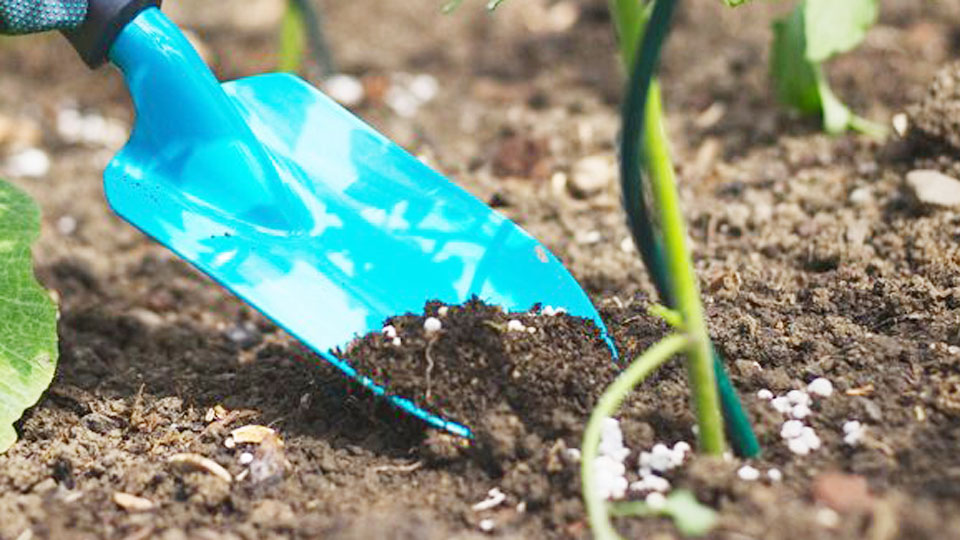Fertilizing your plants might seem like a straightforward task, but when you dive into the world of fertilizers, you’ll quickly realize how nuanced it can be. I’ve experimented with various fertilizers and learned that choosing between organic and chemical options depends on your goals, soil, and even your gardening philosophy.

Image by harpersnurseries
This guide will walk you through the key differences between organic and chemical fertilizers, their pros and cons, and how to use them effectively.
By the end of this guide, you’ll have all the information you need to decide what’s best for your garden. Whether you’re nurturing flowers, growing vegetables, or maintaining a lush lawn, the right fertilizer makes all the difference.
What Are Fertilizers and Why Are They Important?
Fertilizers are like multivitamins for plants. They provide essential nutrients that might not be readily available in the soil. Even the healthiest-looking soil can lack certain nutrients over time, especially if you’re growing crops or plants that are heavy feeders.
The three main nutrients every plant needs are:
- Nitrogen (N): Promotes lush, green foliage.
- Phosphorus (P): Encourages strong root development and flower production.
- Potassium (K): Boosts overall plant health and disease resistance.
Fertilizers ensure your plants get the right balance of these nutrients, but the source—organic or chemical—matters greatly.
Organic Fertilizers: What Are They?
Organic fertilizers are made from natural materials like compost, animal manure, and plant by-products. These fertilizers not only provide nutrients but also improve soil health by enhancing its structure and microbial activity.
Examples of Organic Fertilizers
- Compost (kitchen scraps, leaves, and yard waste).
- Animal manure (chicken, cow, or horse manure).
- Bone meal and blood meal.
- Fish emulsion and seaweed extract.
- Cover crops like clover and alfalfa.
How They Work
Organic fertilizers release nutrients slowly as they break down in the soil. This means they provide long-term benefits but might not give immediate results.
Chemical Fertilizers: What Are They?
Chemical fertilizers, also known as synthetic fertilizers, are manufactured using inorganic substances. They’re designed to deliver specific nutrients quickly and in precise amounts.
Examples of Chemical Fertilizers
- Ammonium nitrate (high in nitrogen).
- Superphosphate (rich in phosphorus).
- Potash (a potassium source).
- Pre-mixed NPK fertilizers (e.g., 10-10-10 or 20-10-10 formulas).
How They Work
Chemical fertilizers dissolve quickly in water, making nutrients readily available to plants. This quick action is perfect for fast-growing plants or when you see signs of nutrient deficiency.
Differences Between Organic and Chemical Fertilizers
Here’s a quick overview to help you compare the two:
| Aspect | Organic Fertilizers | Chemical Fertilizers |
|---|---|---|
| Source | Natural (plant or animal-based) | Synthetic (man-made chemicals) |
| Nutrient Release | Slow and steady | Fast and immediate |
| Impact on Soil | Improves soil structure and microbial life | Can degrade soil over time |
| Cost | Often lower or free (if homemade) | Higher, especially for specialty formulas |
| Environmental Impact | Eco-friendly but can leach if overused | Can cause water pollution and soil salinity |
| Ease of Use | Requires preparation (e.g., composting) | Easy to apply, ready-to-use products |
Benefits of Organic Fertilizers
I’ve always been drawn to organic fertilizers because they do more than just feed plants—they nurture the soil. Here are some of their benefits:
- Improves Soil Health: Organic fertilizers boost soil structure, making it more porous and fertile.
- Eco-Friendly: Made from natural materials, they reduce the risk of water contamination.
- Long-Lasting Effects: Nutrients are released over time, reducing the need for frequent applications.
- Safe for Plants and Pets: There’s little risk of burning plants or harming wildlife.
Benefits of Chemical Fertilizers
When you need a quick fix, chemical fertilizers can save the day. Here’s why they’re popular:
- Fast Results: They deliver nutrients immediately, making them ideal for emergency use.
- Precise Formulations: You can choose products tailored to specific plant needs.
- Convenient: Easy to apply, with clear instructions on the packaging.
- Boosts High-Yield Crops: Perfect for vegetable gardens or crops that need high nutrient levels.
Drawbacks of Organic Fertilizers
While organic fertilizers have many benefits, they’re not perfect:
- Slow Nutrient Release: Not ideal for plants needing an immediate boost.
- Labor-Intensive: Making compost or sourcing organic materials takes time and effort.
- Unpredictable Nutrient Levels: Nutrient content can vary, making it harder to measure application rates.
Drawbacks of Chemical Fertilizers
Chemical fertilizers come with their own set of challenges:
- Soil Degradation: Over time, they can harm soil health and reduce its ability to retain water.
- Environmental Impact: Excess fertilizer can run off into water bodies, causing pollution.
- Risk of Overapplication: Too much can burn plants or disrupt soil balance.
- Cost: Frequent applications can add up, especially for large gardens.
When to Use Organic Fertilizers
Organic fertilizers are ideal if:
- You’re growing vegetables, fruits, or herbs organically.
- You want to improve your soil’s long-term health.
- You’re patient and can wait for slow nutrient release.
When to Use Chemical Fertilizers
Chemical fertilizers are a good choice if:
- Your plants show signs of nutrient deficiency and need immediate help.
- You’re growing high-demand crops like tomatoes or corn.
- You want convenience and precision.
How to Apply Fertilizers Properly
Regardless of the type you choose, proper application is key to avoiding problems and maximizing benefits.
Steps for Organic Fertilizers
- Prepare Your Soil: Test it to identify nutrient deficiencies.
- Apply Evenly: Spread compost or manure over your garden bed and mix it into the soil.
- Water Thoroughly: Watering helps nutrients seep into the soil.
- Reapply as Needed: Add more organic material every few months.
Steps for Chemical Fertilizers
- Choose the Right Formula: Match the NPK ratio to your plants’ needs.
- Follow Instructions: Measure carefully to avoid overapplication.
- Apply to Damp Soil: This reduces the risk of burning plants.
- Water After Application: This helps dissolve the fertilizer and spread it evenly.
Balancing Organic and Chemical Fertilizers
Here’s a secret I’ve discovered over the years: you don’t have to choose one or the other. A balanced approach can give you the best of both worlds.
For example, you can use organic fertilizers to improve soil health and chemical fertilizers for quick nutrient boosts during the growing season. Just be mindful of how much you’re using to avoid nutrient overload.
Making Your Own Organic Fertilizers
If you’re on a budget or want more control over what goes into your garden, homemade organic fertilizers are a fantastic option.
DIY Fertilizer Recipes
- Banana Peel Tea: Soak banana peels in water for a potassium-rich liquid fertilizer.
- Eggshell Powder: Crush eggshells and mix them into the soil for a calcium boost.
- Grass Clippings: Spread clippings around plants to act as mulch and release nitrogen.
Conclusion
Choosing between organic and chemical fertilizers doesn’t have to be an either-or decision. Both have their advantages and drawbacks, and the best choice depends on your garden’s needs, your goals, and even your gardening style.
If you’re focused on long-term soil health and eco-friendly practices, organic fertilizers are the way to go. But if you need quick results or are working with high-demand crops, chemical fertilizers can be a valuable tool.
Personally, I’ve found that a combination of both often works best. By understanding the strengths and weaknesses of each type, you can create a fertilizer plan that keeps your garden thriving year-round.
So, go ahead—experiment, observe, and adjust as needed. Your plants will thank you with lush growth, vibrant blooms, and bountiful harvests.
FAQs
Are organic fertilizers better for the environment?
Yes, organic fertilizers are eco-friendly and improve soil health without causing water pollution.
Can I use chemical fertilizers on edible plants?
Yes, but follow the instructions carefully to avoid overapplication and wash produce thoroughly before consuming.
How often should I apply fertilizer?
It depends on the type of fertilizer and the plant’s needs. Organic fertilizers are usually applied every few months, while chemical fertilizers might need monthly applications.
What’s the best fertilizer for beginners?
Compost is an excellent starting point for beginners. It’s easy to make and provides a balanced nutrient mix.
Can I mix organic and chemical fertilizers?
Absolutely! Combining both can give you immediate results from the chemical fertilizer and long-term benefits from the organic option.
Do fertilizers expire?
Organic fertilizers generally don’t expire, but chemical fertilizers can lose effectiveness over time if not stored properly.
What’s the difference between compost and organic fertilizer?
Compost is a type of organic fertilizer that’s made from decomposed organic matter. It improves soil structure and provides nutrients.
By now, you should have a solid understanding of the differences between organic and chemical fertilizers and how to use them effectively. Happy gardening!

I’m Marissa Lynn, the proud author behind GardeningProperty.com! With a deep-rooted passion for all things green and growing, I’ve dedicated years to mastering the art and science of gardening.
From nurturing vibrant flowerbeds to cultivating thriving vegetable gardens, I love sharing practical tips, creative ideas, and proven techniques to help others create their dream outdoor spaces.